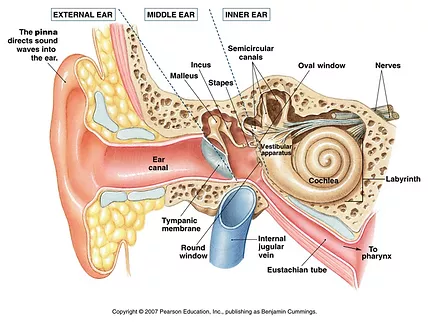SEO for Healthcare Websites: From Technical Fixes to Medical-Specific Strategies

If you run a healthcare practice—or you’re managing the marketing for one—you already know how critical it is to be visible online.
Whether you’re a small clinic, a large hospital group, or a niche provider, patients are turning to search engines before they ever make a call.
However, SEO in healthcare isn’t just about rankings. It’s about credibility, compliance, and conversion. From HIPAA considerations and medical accuracy to content that balances empathy with authority, it plays by a stricter and more nuanced set of rules.
And if your site’s running on slow tech, outdated content, or bland messaging? You’re leaving visibility—and patients—on the table.
Let’s walk through how to actually approach SEO for a healthcare website—starting from the technical nuts and bolts and working up to the strategies that really move the needle in this space.
First, Fix the Foundation: Technical SEO Still Matters
You can write all the content you want, but if Google can’t properly crawl, index, or trust your site? It’s like shouting into a void.
Technical SEO is where everything starts. We’re talking about:
- Site speed (your patients and search engines won’t wait for more than 6 seconds for a page to load)
- Mobile responsiveness (most healthcare searches happen on phones now)
- Crawlability and indexability (sitemaps, clean internal linking, meta tags, etc., matter for Google to find, crawl, and index your site).
- Structured data (especially for local listings, reviews, FAQs)
- Proper HTTPS and security settings (search engines give ranking preference to secure sites).
- Broken links, redirect chains, duplicate content—the usual suspects
And yeah, it can be a little overwhelming. That’s where a good technical SEO consultancy earns its keep.
They’ll audit your site, flag the problem areas, and help you clean up the mess you didn’t even know you had.
Think of it like a health check for your website. You’re not treating symptoms—you’re looking at the system as a whole.
Then, Understand the Rules of Medical Content
Healthcare is not lifestyle blogging. You can’t just wing it, keyword stuff some health advice, and expect to rank and convert.
Here’s why:
- Google holds medical content to a higher standard. It’s part of their E-E-A-T framework (Experience, Expertise, Authoritativeness, Trustworthiness). If you’re giving health advice, Google wants proof you know what you’re talking about.
- Content must be factually accurate. You can’t make exaggerated claims, promise results, or copy/paste generic medical definitions.
- Trust signals matter. Having content reviewed by licensed professionals, displaying credentials, linking to reputable sources—these things help boost credibility and rankings.
Working with an agency that offers medical SEO services means you’re not just getting basic blog posts. You’re getting content that’s strategically researched, medically reviewed, and optimized to pass both algorithmic and ethical sniff tests.
Local SEO: Show Up Where It Counts
When someone searches for “dermatologist near me” or “walk-in clinic downtown,” you don’t want to be buried beneath a dozen competitors.
Local SEO helps you:
- Rank in Google’s local map pack
- Show up for city- or neighborhood-specific keywords
- Optimize your Google Business Profile (which patients do check before calling)
- Collect and manage reviews (hello, trust factor)
- Create location-specific landing pages for each service or office
Whether you’re running one practice or a multi-location brand, local SEO is your chance to dominate the visibility game where it matters: in your actual service area.
Content That Educates and Converts
Content still rules. But in healthcare, the stakes are higher.
It’s not just about keywords—it’s about understanding what your patients want to know and how they feel while searching, often during moments of uncertainty, fear, or urgency.
This means writing pages and blog posts that:
- Answer real questions (symptoms, causes, treatment options)
- Speak in plain English (not medical jargon )
- Include reveant CTAs (book an appointment, call now, get a consultation)
- Reflect empathy with authority, not just expertise
Good SEO content builds trust before a patient ever talks to you. And if you’re doing it right? That trust turns into appointments, consults, and long-term patients.
Link Building for Healthcare: Harder, But Not Impossible
Healthcare websites can’t rely on cheap link-building tactics. You’re not trying to rank for “best headphones under $100.” You’re talking about people’s bodies, minds, and health. The bar is higher.
Instead, focus on:
- Getting featured in authoritative local directories or health resource lists
- Partnering with industry publications for guest posts
- Earning links through data-driven content (like surveys or original research)
- Build Relationships with Educational or Nonprofit health organizations
It’s a slow climb, but quality links in healthcare are worth 10x what you’d get from a low-quality blog.
Tracking, Analytics, and Conversion Goals
It’s not just about driving traffic—it’s about understanding what that traffic does once it gets to your site.
Do they:
- Fill out a contact form?
- Call your front desk?
- Book a consultation?
- Bounce after 10 seconds?
A good medical SEO services partner will not only get you traffic—they’ll help you track conversions, tweak your UX, and figure out what’s turning visitors into patients.
And yes, tools like Google Analytics, Search Console, and call tracking matter here. But so does the ability to interpret that data and turn it into smart strategy—and sustainable growth.
Final Thoughts: SEO in Healthcare Isn’t Optional Anymore
Patients don’t flip through phonebooks. They Google. They compare. They read reviews. And they make decisions before they ever call your clinic.
If your website isn’t visible, fast, helpful, and trustworthy? You’re losing to someone who is.
Whether you’re just starting to invest in SEO or looking to fix what’s broken, your best bet is to partner with a team that knows both sides of the game: the technical SEO consultancy side that keeps your site healthy, and the medical SEO services side that helps you connect with the right people in the right way.Because in healthcare, trust isn’t built in a second. But it is lost in one broken link or outdated headline.





